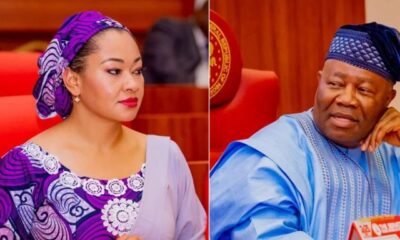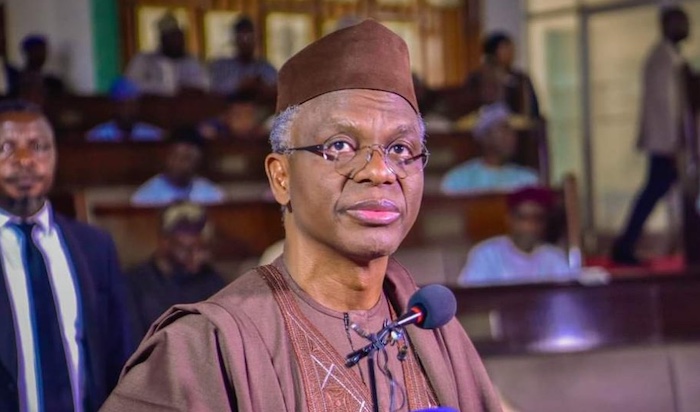The Chairman of the Senate Committee on Inter-Parliamentary Affairs, Jimoh Ibrahim, stated that the debate on the state of emergency imposed on Rivers State by President Bola Tinubu was postponed to Thursday to ensure participation from senators who were absent.
The senator representing Ondo South made this clarification during an interview with journalists on Wednesday, explaining that some lawmakers were unavailable due to Ramadan fasting, while others were absent for other reasons.
“First thing tomorrow morning, the proclamation will be debated. By then, information will have gone to other members. Some members are fasting; they are praying in their homes. Tomorrow, they will be here, and then by 10 o’clock, we pick it up. We are in tandem with Mr. President.”
Ibrahim further mentioned that, although 68 senators were present, the issue required broader participation due to its significant security implications.
“Today, we had 68 members outside of 10 members of the leadership who are present, so we have a quorum. It’s not just about the numbers. I am in tandem with Mr. President because this borders on life and security. We don’t joke with life and security.”
He also addressed concerns about Tinubu’s emergency declaration, clarifying that it was a temporary measure rather than the dissolution of democratic institutions.
“The President did not dissolve democratic constitutions. He only suspended them for six months. And these six months will enable parties to go to the table, find out their differences, and come together so that there can be peace in Rivers State and, by extension, Nigeria.”
The Senate initially suspended its plenary session, stating that the debate on the emergency rule would be moved to Thursday due to the absence of many lawmakers.
The postponement was further delayed until 3 PM when Senate Leader Opeyemi Bamidele (APC, Ekiti Central) moved to postpone the motion, citing Order 1(b) of the Senate Standing Orders 2023 (as amended). Minority Leader Abba Moro (PDP, Benue South) seconded the motion, and the Senate proceeded to other matters without further discussion.
Concerns Over Security Situation
Bamidele’s motion highlighted concerns about security threats in Rivers State, mentioning militant threats and incidents of vandalized oil pipelines.
“Worried that there is a clear and present danger of the crises as some militants had threatened fire and brimstone, with security reports indicating disturbing incidents of vandalization of oil pipelines.
Convinced that there is the need to provide adequate and extraordinary measures to restore good governance, peace, order, and security in Rivers State.”
For the state of emergency declaration to be officially approved, the Senate requires a two-thirds majority (73 out of 109 senators). However, concerns remain about whether the required votes will be secured by Thursday.
Eventually, Senate President Godswill Akpabio called for a voice vote to confirm the postponement of the debate and suspension of the plenary, with many senators voting in favor.
Tinubu’s State of Emergency Declaration
On Tuesday night, President Bola Tinubu declared a state of emergency in Rivers State, leading to the suspension of:
- Governor Siminalayi Fubara
- Deputy Governor Ngozi Odu
- All elected members of the Rivers State House of Assembly
The initial suspension period is six months.
In his national broadcast, Tinubu cited prolonged political instability, constitutional violations, and security threats as the reason for the extraordinary measure.
The crisis in Rivers State stems from a power struggle between Governor Fubara and his predecessor, Nyesom Wike, who currently serves as Minister of the Federal Capital Territory.
To oversee the state’s affairs during the emergency rule, Tinubu appointed Vice Admiral Ibok-Étè Ibas (retd.) as sole administrator.

 BIG STORY2 days ago
BIG STORY2 days ago
 BIG STORY4 days ago
BIG STORY4 days ago
 BIG STORY2 days ago
BIG STORY2 days ago
 BIG STORY4 days ago
BIG STORY4 days ago
 BIG STORY2 days ago
BIG STORY2 days ago
 BIG STORY4 days ago
BIG STORY4 days ago
 BIG STORY4 days ago
BIG STORY4 days ago
 BIG STORY3 days ago
BIG STORY3 days ago
























